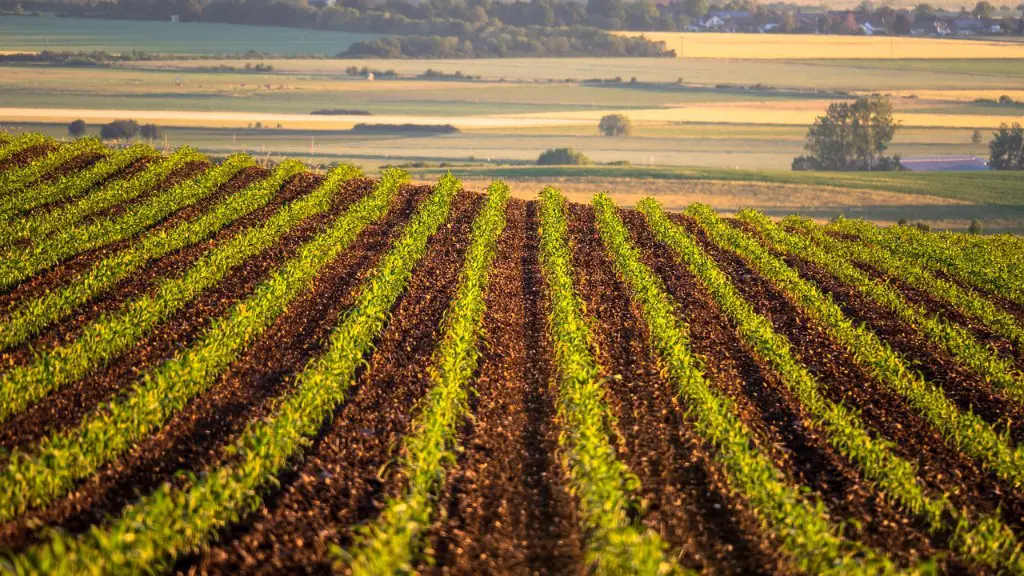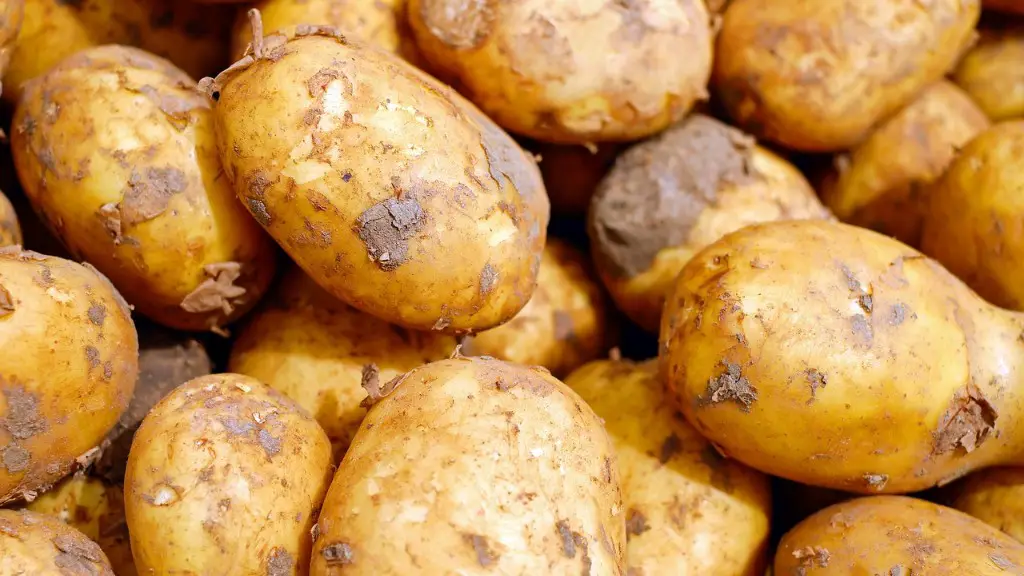Agriculture was important to the development of civilization for a number of reasons. First, agriculture allowed for the domestication of plants and animals, which led to the development of civilizations. Agriculture also allowed for the growth of cities and the rise of civilizations. Finally, agriculture allowed for the development of writing and other technologies that allowed for the advancement of civilizations.
Agriculture was very important to the development of civilizations because it allowed for a more settled, sedentary lifestyle. Agriculture also allowed for surpluses of food to be stored, which allowed for the development of cities and civilizations.
Why is agriculture important for civilizations?
It is true that more abundant food supplies could support denser populations, and farming did tie people to their land. However, small settlements did not always grow into towns and towns did not always grow into cities. It was only when agriculture began producing enough food that people became free to pursue interests other than worrying about where their next meal would come from. This allowed for the development of civilizations and the progress of humanity as a whole.
The domestication of plants and animals allowed humans to settle into communities and establish an agricultural way of life. This transition away from a nomadic hunter-gatherer lifestyle was a major turning point in human history. Agricultural communities allowed for the growth and development of civilizations. Today, agriculture is a vital part of many cultures and continues to play a significant role in human society.
What was the agricultural revolution and what was its significance to the development of civilization
The Agricultural Revolution was a pivotal moment in human history, and set the foundation for many of the things we take for granted today. The ability to cultivate our own food allowed us to settle in one area, which in turn led to the growth of human society in terms of culture and technology.
1. Agriculture is the main source of raw materials for industries.
2. It is important to international trade.
3. It plays a big role in a nation’s revenue.
4. It provides employment.
5. It’s crucial to a country’s development.
6. It can help heal the environment.
7. It goes hand-in-hand with war.
8. It can help alleviate poverty.
9. It can provide food security.
10. It is a key sector in the economy.
What are 3 importance of agriculture?
Agriculture plays a critical role in the entire life of a given economy. Agriculture is the backbone of the economic system of a given country. In addition to providing food and raw material, agriculture also provides employment opportunities to a very large percentage of the population.
Agriculture is a vital sector of the economy, playing a major role in economic growth and development. As the provider of food, it is a cornerstone of human existence. As a furnisher of industrial raw materials, it is an important contributor to economic activity in other sectors of the economy.
The agricultural sector has a strong multiplier effect on the economy, generating income and employment opportunities in other sectors. It is an important source of foreign exchange earnings, and a major contributor to the country’s GDP.
The sector is facing challenges in the form of climate change, water scarcity, declining productivity, and dwindling resources. There is a need for increased investment in agricultural research and development, and for policies that will promote sustainable agricultural practices.
How long has agriculture contributed to the growth and development of civilization?
Agriculture allowed for the domestication of plants and animals, which led to the development of civilizations. Agriculture allowed for the growth of cities and the rise of civilizations. Agriculture allowed for the growth of food surpluses, which allowed for the development of trade and commerce. Agriculture allowed for the growth of civilizations, which led to the development of metal tools.
Agriculture has been identified as a major contributor to a number of environmental issues that are causing environmental degradation. These include climate change, deforestation, biodiversity loss, dead zones, genetic engineering, irrigation problems, pollutants, soil degradation, and waste. While some of these issues are caused by agricultural activities, others are the result of the way that agriculture is practiced. In order to mitigate the impact of these problems, it is important to understand the root causes and possible solutions.
What are 3 impacts from the agricultural revolution
The agricultural revolution led to a number of consequences for humans, both good and bad. On the one hand, it allowed for the growth of civilizations and the rise of cities. On the other hand, it also led to inequalities between those who owned the land and those who worked it, as well as to a decline in nutrition and an increase in infectious diseases contracted from domesticated animals.
The development of agriculture is called a revolution because it has had such radical changes on human society throughout history. They resulted in the invention of the first cities, allowed for industrialization, and caused the human population to grow massively.
How did agriculture help build civilizations quizlet?
Farming has changed the kinds of communities people live in by making it possible for people to trade goods and settle in one place. Farming has made it possible for people to build more permanent homes and has changed the way people live.
Agriculture is the backbone of many economies, particularly in developing countries. It is the main source of food and livelihoods for a large proportion of the world’s population.
Agriculture also has a significant role in environmental protection. It is a major driver of deforestation and land degradation, but can also be a key tool in tackling these problems.
Sustainable agriculture is vital for the future of our planet. It is essential for food security, but also has the potential to help mitigate some of the most pressing environmental challenges we face, such as climate change.
What are two reasons why agriculture is important
Agriculture’s impact on society is far-reaching and complex. It not only provides the food and raw materials we need to survive, but also supports livelihoods and economies around the world. Agriculture plays a vital role in our society and the way we live our lives.
It is interesting to note that cow milk is the top agricultural product in 37 countries, while wheat is the top agricultural product in 14 countries. This shows that there is a lot of diversity in the types of crops that are grown around the world. Corn is the most produced crop globally, with 11 billion tons, followed by wheat with 7609 million tons and rice with 7567 million tons. This underscores the importance of corn as a global food source.
What are the impacts of agriculture to the society?
The agricultural industry globally is putting an ever-increasing amount of pressure on land and water resources, often leading to land degradation (such as soil erosion and salinization), and eutrophication. Additionally, agriculture is also a major contributor to greenhouse gas emissions. These issues need to be addressed in order to mitigate the negative impacts of agriculture on the environment.
Agriculture has played a vital role in shaping human civilization. By allowing us to settle down in one place and grow our own food, it has allowed us to develop complex societies and cultures. It has also had a profound impact on our ecology, as we have altered the landscape to suit our needs.
Final Words
In many ways, agriculture was the key factor in the development of civilizations. It allowed for the growth of cities and the rise of civilizations by providing a steady food supply. It also allowed for the development of trade and commerce as agricultural surplus can be traded for other goods. Agriculture allowed for the domestication of plants and animals, which in turn led to the development of technologies and knowledge such as irrigation and crop rotation. In short, agriculture allowed for the growth of civilizations by providing a reliable food source, promoting trade and commerce, and leading to advances in technology and knowledge.
Agriculture was important to the development of civilization because it allowed for the growth of cities and the rise of civilizations. Agriculture allowed for the domestication of plants and animals, which led to the development of civilizations. Agriculture allowed for the growth of food surpluses, which allowed for the development of trade and commerce. Agriculture allowed for the growth of cities and the rise of civilizations.





